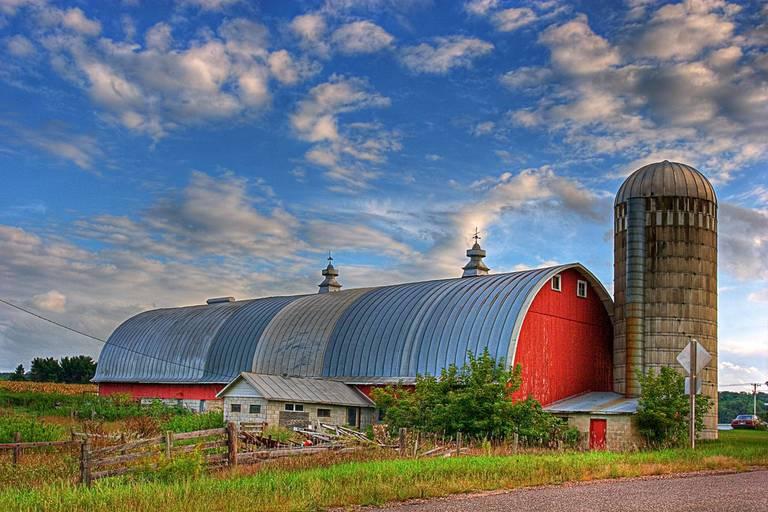
DanoneWave, the outcome of Danone’s $12.5 billion acquisition of WhiteWave Foods earlier this year, is now the largest public benefit corporation in the U.S. In addition to its commitment to reduce the number of ingredients in its products, boost water conservation efforts, reduce waste and improve animal welfare, the company now says it wants to build a more sustainable supply chain.
To that end, DanoneWave has accelerated what it describes as a “pledge” to improve the financial and environmental performance of dairy farmers, who are crucial to the success of the company’s products such as yogurt. As a start, DanoneWave says it wants to strengthen its relationship with farmers at the beginning of the milk production cycle, instead of merely purchasing the ingredient the moment before it becomes yogurt at one of its factories.
Farmers who accept DanoneWave’s pledge enter what the company describes as a “special club.” The quid pro quo involves dairy farm operators opening their books and agreeing to launch new practices across their operations. In return, the company will agree to pay for costs involved in ensuring these dairy farms become more sustainable, including fees for Validus dairy farm certifications as well as other programs. DanoneWave says that currently 90 percent of the milk used to make the company's products is sourced from Validus-certified farms.
DanoneWave would not reveal too many specifics about this program, but said the overarching goal is to improve these farms’ profitability while helping their operations become more sustainable. “While we cannot share all the details of the private relationships,” explained a company representative by email, ”We can tell you that the concept is to provide the producers with an agreed-to margin.”
Dairy farmers overall have long been subjected to thin margins; one estimate suggests that a gallon of milk on averages nets the farmer less than $1.50 - and then they have to account for the costs related to tending their animals while staying compliant with a bevy of regulations. Profits can often end up being as low as a few cents per gallon of milk. But according to DanoneWave, the appeal of its program is that dairy farmers will receive a fixed price and stable buyer for their ingredient. But in return, they must be open to employing sustainable farming techniques such as no-till and the planting of cover crops. DanoneWave says such moves are necessary, as the company has been hearing increased feedback from customers who say they want their products to be more responsible, more healthful and more sustainable.
DanoneWave’s representatives also told TriplePundit that dairy farmers would score the satisfaction of knowing in which products their milk winds up. After all, the company insists more consumers are also concerned about their foods’ traceability. While this is often true of foods such as coffee and chocolate, 3p asked Danone if this actually applied to dairy products. “The increase in interest to know where food comes is not specific to dairy,” explained the DanoneWave representative, ”this is a trend we are observing across categories of food."
The company pointed to recent studies suggesting that at a higher level, traceability should now be more of a concern for food companies. Whether more yogurt cups in the future will sport a disclaimer saying “this yogurt is made from milk in this zip code” will become an industry norm anytime soon is an open question.
It’s important to note that while DanoneWave is working with farmers to become more sustainable, that does not necessarily mean participating farmers will go organic despite these products’ enduring popularity. And that may very well be a smart decision by the company, as organic certification has sometimes proven to be a slippery slope, as portrayed by a Washington Post investigation earlier this year. While the company owns a couple organic brands (Horizon and Wallaby), dairy farmers who seek organic certification will have to look elsewhere for assistance. “The non-organic dairy farmers that we are currently working with for Dannon yogurt products have not expressed interested in going organic,” explained a DanoneWave spokesperson. “It's an individual decision whether to pursue organic certification.”
Image credit: Randen Pederson/Flickr

Leon Kaye has written for 3p since 2010 and become executive editor in 2018. His previous work includes writing for the Guardian as well as other online and print publications. In addition, he's worked in sales executive roles within technology and financial research companies, as well as for a public relations firm, for which he consulted with one of the globe’s leading sustainability initiatives. Currently living in Central California, he’s traveled to 70-plus countries and has lived and worked in South Korea, the United Arab Emirates and Uruguay.
Leon’s an alum of Fresno State, the University of Maryland, Baltimore County and the University of Southern California's Marshall Business School. He enjoys traveling abroad as well as exploring California’s Central Coast and the Sierra Nevadas.














